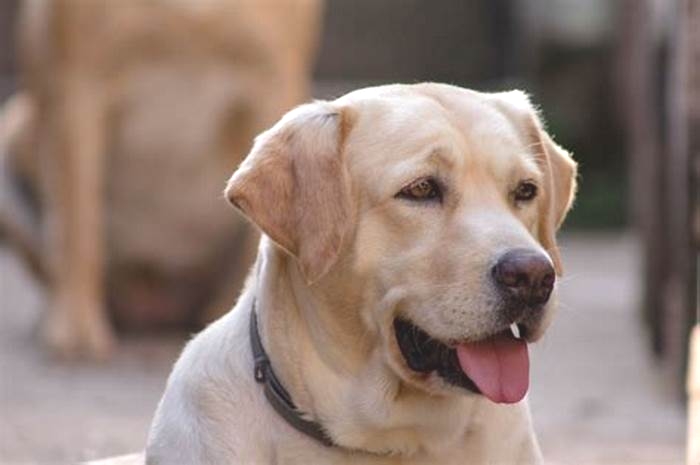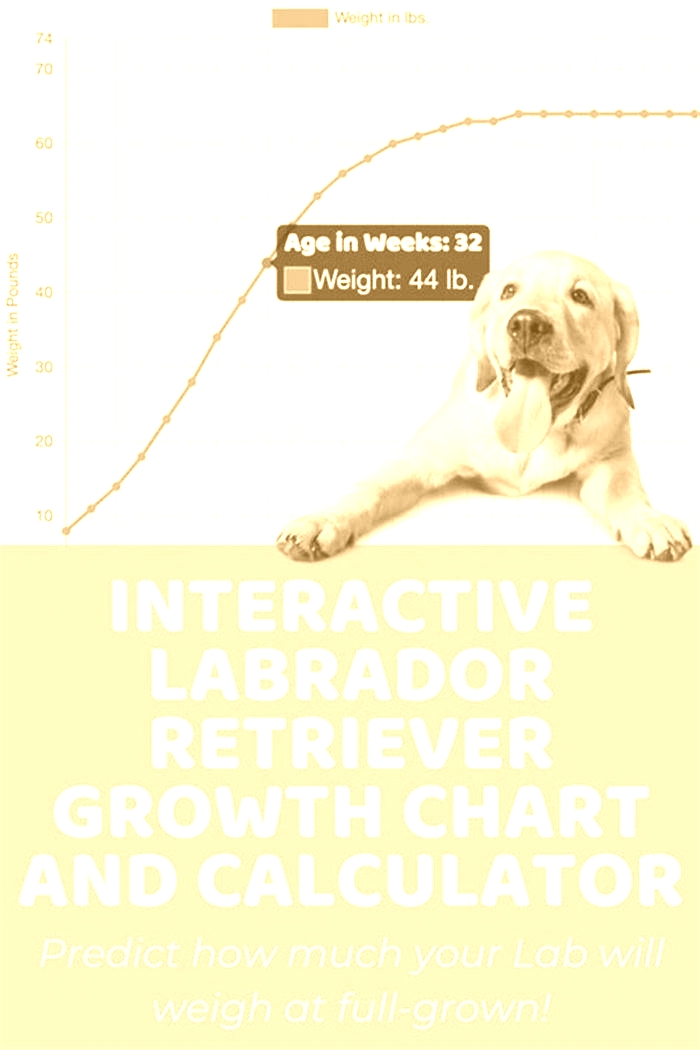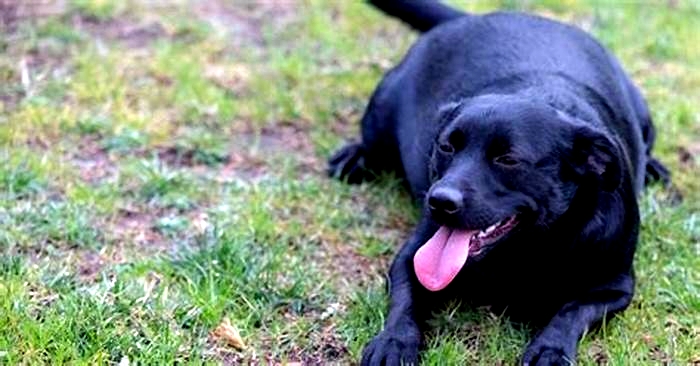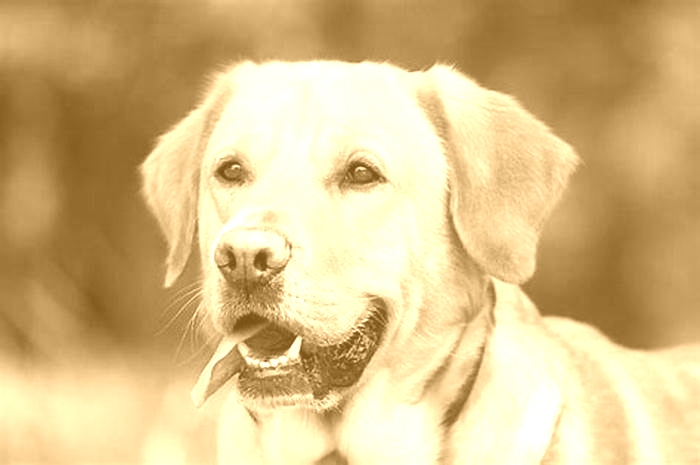Why are labs so happy

Why Are Labradors So Loving and Affectionate? (7 Reasons + 31 Ways Labs Show Affection)
Are you curious about the factors that contribute to Labradors reputation as loving and affectionate companions? Maybe you want to assess whether Labradors temparament, loving and affectionate nature is a right fit for your family and lifestyle.
Or, perhaps youre seeking guidance on nurturing and maintaining this affectionate behavior through training and care.
If so, youve found the perfect resource!
In this comprehensive guide, well unravel the intricacies behind the 7 main reasons why Labradors are celebrated for their loving and affectionate nature. Also, well delve into the 31 ways in which Labradors express love and affection.
But thats not all we will also equip you with expert tips and strategies on how to effectively foster loving and affectionate tendencies while raising a happy and well-adjusted Labrador.

7 Reasons Why Labs Are Loving & Affectionate
1) Bred as Companions
In unraveling the tapestry of a Labradors affectionate nature, one must take a look back at the very threads that wove the character of this breed the historical context of their breeding.
Initially bred for the practical purposes of retrieving waterfowl, Labradors evolved into a breed much sought-after for companionship. Now, this wasnt a mere coincidence, but an orchestrated progression through selective breeding.
Picture this, a cold morning in Newfoundland in the early 1800s, with fishermen and hunters relying on sturdy, diligent dogs to retrieve their catch. These early Labradors werent only prized for their work ethic but also for their gentle temperament.
They had to be amiable enough to take directions and work alongside their human counterparts and this was the blueprint for the Labradors character.
Fast forward to the 20th century and we witness a transition in the role of the Labrador. Families and individuals began to recognize the intrinsic value of having a loving companion and what better candidate than the affable Labrador?
Breeders, realizing the potential, shifted gears and began focusing on honing the amiable traits of the Labrador.
This transition did not happen in a vacuum; society was changing. The 20th century brought with it an emphasis on family and home life after the war.
With more leisure time, families sought dogs that would be a positive addition to their household and the Labrador, with its friendly disposition, proved to be an ideal match.
Moreover, as Labradors began to be widely recognized for their amiable nature, they started to be used in roles that required a gentle touch such as therapy and assistance dogs.
This further embedded their role in society as not just pets but as companions in the truest sense of the word.
Their genetic predisposition to be good-natured, honed through centuries of selective breeding, combined with societal changes, cemented the Labradors position as one of the most loving and affectionate breeds.
Their history as working dogs alongside humans created a bond that transcended practicality entering the realms of emotional connection.
Its noteworthy to mention that being bred as companions also meant that Labradors had to be sociable. They needed to get along with other pets and children.
This requirement further bolstered their development as affectionate dogs. Their genetic makeup evolved to favor traits that made them excellent companions and this is reflected in the modern Labrador.
Read Also: Why Are Labradors So Loyal? (Explained)
2) Social Creatures
Labradors are quintessentially social creatures, and it is this inherent social inclination that largely contributes to their loving and affectionate demeanor.
Firstly, being social animals, Labradors have an innate desire to establish and maintain relationships with those around them. This isnt limited to just bonding; its a deep-rooted need to actively engage, communicate and share affection with members of their social circle.
In addition, Labradors social tendencies have evolved as part of a survival mechanism. In historical contexts, dogs that were able to bond with humans were more likely to receive protection and food.
Specifically, for Labradors, this meant being in tune with the emotions of their human companions. Over time, this emotional synchronization developed into an inherent trait; they dont just understand human emotions, they empathize.
This empathy is often expressed through affection.
Whats also fascinating is that Labradors seem to inherently comprehend the value of physical touch as a means of communication.
Within dog packs, physical touch is a significant means of establishing social bonds. Translated into a human context, this means Labradors naturally use physical affection as a means of both communication and connection.
The social nature of Labradors also translates into a keen sense of being part of a community. For a Labrador, family is the immediate community.
Being loving and affectionate is their way of contributing to this community and they seem to understand that affection helps in nurturing bonds and strong bonds are the foundation of a healthy community.
Furthermore, the highly social nature of Labradors makes them excellent at reading social cues. They can often gauge the mood in the room.
This ability to sense emotions means that they often use affection as a means to either share in the joy or offer comfort during distress.
Another aspect is that Labradors are also natural teachers and caregivers. Labradors, in their pack-oriented mindset, view taking care of each other as an imperative duty.
This is particularly true when it comes to the younger, older, or less able members of the pack.
In a domestic setting, this caregiving nature manifests itself as affection. For example, its not uncommon to see Labradors being especially gentle and caring around babies or the elderly.
They seem to instinctively know that these members of the family require more tender attention. This is an extension of their role in the wild where such behavior would be essential for the welfare of the pack.
The nurturing aspect forms a vital component of their personality and Labradors often take it upon themselves to ensure that their pack is well taken care of.
This nurturing nature can also extend to acts of saving lives or helping someone in distress, as many Labradors are also used as service dogs due to this innate quality.
Lastly, the social inclination of Labradors means they are constantly learning and adapting from social interactions. This is because Labradors have an innate understanding of the social currency that affection holds.
They comprehend that in human society, just as in packs, affection is a bonding agent a medium of expressing love, gratitude, empathy and camaraderie.
For a Labrador, showering affection on someone is akin to acknowledging them as a valued member of their pack.
They understand that this affection will not only make the bond with their human family stronger but also build a network of trust and security.
Through their affable nature, they lay the foundations for a relationship thats steeped in mutual respect, love and affection. They actively invest in this social currency knowing that it is integral to the cohesion of their human pack.
You might also be interested in Why Are Labs So Docile? (7 Reasons Why)
3) Eager To Please
Delving into the endearing world of Labradors, one reason that so beautifully defines why they are so loving and affectionate is their insatiable eagerness to please those around them.
This trait is like a golden thread woven into the fabric of their very being.
Labradors have an intrinsic eagerness to please that makes them particularly loving and affectionate. This attribute is rooted in their historical roles as working dogs, where being in sync with their human counterparts was essential.
And as a result of that, this has evolved into an innate desire to establish harmonious and loving relationships with humans.
Furthermore, their acute sensitivity to human emotions drives their affectionate behavior.
Labradors seem to have an uncanny ability to perceive our moods and emotions and they often respond by offering comfort through physical closeness or a reassuring nuzzle.
Labradors acute sensitivity to human emotions can be, in part, attributed to the co-evolution with humans. As domesticated dogs, they have developed the ability to understand and interpret human gestures and facial expressions.
A Labrador, with its eager-to-please temperament, will often be acutely aware of a change in their owners mood and will seek to provide comfort or companionship to alleviate any distress.
This shows a level of empathy which is a cornerstone of an affectionate and loving behavior.
The very act of pleasing also seems to bring joy to Labradors.
This mutual exchange of positive emotions creates a feedback loop; as humans react positively to a Labs affection, the dog is further encouraged to engage in this behavior.
This interplay fortifies the bond between the Labrador and its human family members.
This cognitive reinforcement builds a repertoire of behaviors centered around pleasing their owners which by extension, is an expression of their love and affection.
4) Gentle Temperament
Labradors gentle temperament is intrinsically connected to their affectionate demeanor. Unlike breeds that might have a more assertive or aloof temperament, the softness of a Labradors character allows them to be more open and receptive to showing and receiving affection.
This amiable nature often translates into a Labrador seeking physical contact, such as leaning against a person or lying on their feet, which is a form of expressing love.
When discussing the softness of a Labradors character, it is vital to understand that this gentleness acts as a conduit for emotional connections. They do not have barriers that more assertive dogs might have; instead, they have an innate openness.
This openness is what permits the affectionate behavior to flow freely. For instance, a Labrador will often seek physical closeness, such as nuzzling or leaning, which are both salient expressions of affection.
This isnt incidental; it is a reflection of the intrinsic traits of the breed.
Whats more, this gentle temperament of Labradors also reflects in their interaction with children. Children are often rambunctious and may not know how to properly approach dogs.
Labradors typically remain unflustered in these situations due to their serene disposition. They dont see the need to establish dominance or retreat; instead, they allow the interaction to unfold.
This tolerance isnt just patience; its a form of love. The ability to understand and accept is rooted in affection.
Not to be overlooked, Labradors gentle nature is not limited to familiar faces. They extend their affection to those they have just met. Their lack of aggressive reactions is an example of how their temperament shapes their interactions.
Where other breeds might react with suspicion or aggression to new stimuli or strangers, Labradors tend to be curious and welcoming. They are eager to form new bonds, and they do this through affectionate interaction.
Furthermore, Labradors gentleness is not a passive quality; its an engaging gentleness. They can be full of energy, but they arent rough. They engage in playful activities, but they do so in a manner that is careful not to cause harm or discomfort.
This is a crucial aspect of their affectionate nature. They can express their love through playful engagement while ensuring the safety and comfort of those they are interacting with.
All in all, the gentle temperament of Labradors is central to why they are so affectionate.
Their innate gentleness paves the way for deep bonds, open affection, emotional attunement and friendly interactions, all of which are expressions of love and affection.
They are a breed that not only has a capacity for affection but actively seeks and displays it through their gentle nature.
You might also be interested in Why Are Labradors So Cute? (10 Reasons + Tips)
5) Active and Playful
Labradors, being both active and playful, are like a bundle of joy ready to burst at any moment and its this very vibrancy that plays a significant role in their affectionate nature.
Being active and playful is not just a physical trait; it's also an emotional one. It's a Labrador's way of engaging with the world and the people in it. When a Labrador plays, it's not just playing; it's bonding. Its a language of love.
Dive into a Labradors playfulness and youll see its not just random action; theres communication happening. When a Labrador fetches a ball or tussles playfully, its as if theyre saying, Im here with you, and this is fantastic.
Theyre sharing their energy and zest for life which is an inherently positive and affectionate action. Its their way of saying they trust you enough to let their guard down and just be in the moment with you.
One cannot overlook how their playfulness affects those around them. Its contagious. People cant help but respond with laughter, smiles and engaging in play. In these moments, a bond is forged. This is an emotional exchange; its Labradors sharing their spirit.
Moreover, their active nature means theyre also up for longer walks and activities which involve both physical and mental stimulation. Imagine hiking with a Labrador; theyre not just walking.
Theyre sniffing, looking, engaging with everything. This isnt just curiosity; its an invitation. Theyre inviting their human companions into their world. Sharing experiences is a form of intimacy which is central to affection.
Additionally, through play, Labradors learn about their human companions. They learn what makes you laugh, what surprises you and what engages you.
Theyre not just learning how to play; theyre learning who you are. And in doing so, theyre also showing you who they are. This mutual understanding is the cornerstone of affection.
Playfulness in Labradors also includes an element of care. When they play, they are often attentive to the responses of their human companions.
They engage in a manner that is considerate. They dont want to just play; they want to play with you. This means adapting, understanding and responding and this attentive play is a form of affection.
With that said, play is often seen as just a game, but with Labradors, its so much more. Its a dialogue an exchange of joy. Its shared experiences and understanding. Its also caring engagement.
All these facets of being active and playful contribute to why Labradors are so loving and affectionate. They dont just live in the world; they engage with it affectionately. Through their playfulness and activity, they weave a tapestry of emotional bonds.
Check Also: Why Are Labradors So Strong? (6 Reasons You Should Know + Tips To Maintain Strength)
6) Loyal & Protective
When speaking about the affectionate nature of Labradors, their loyalty and protective instincts are paramount. Its essential to understand that loyalty in Labradors is not just an unwavering commitment; its an emotional bond.
Labradors dont just stay by your side; they become part of your life. They are not just present; they are actively engaged and this loyalty is an expression of deep affection. They are saying, I am here for you.
Moreover, this loyalty is not static; its dynamic. It involves Labradors being attentive to the needs and emotions of their human companions.
Whether youre going through a rough patch or celebrating, a Labrador will be right there with you, mirroring your emotions, providing comfort or sharing in your joy. Their loyalty means they are emotionally attuned and responsive no matter what, which is inherently affectionate.
Now, lets think about what loyalty means in the context of day-to-day life. Imagine a Labrador waiting eagerly for their owner to return home. This isnt just about being fed or walked; its about the bond they share.
The sheer joy they exhibit upon their owners return is a testament to the depth of their loyalty, as their entire day is often centered around the moments they share with their human family.
lets also talk about how their protective nature ties into this. Being protective is often seen as a guard dog trait, but in Labradors, its different.
Their protectiveness is an extension of their loyalty. They dont just protect the household; they protect the family. And not just from physical dangers but emotional ones too.
Their presence is like a shield, a constant reminder that you are not alone. This protection is not just physical; its emotional.
For instance, if a stranger approaches the house, a Labrador will be alert and assessing the situation. Not just because its an unfamiliar person but because they are vigilant about the safety and well-being of their family.
This protectiveness is a form of love. They are putting themselves in between their loved ones and any potential harm.
Their loyalty and protective nature can be further exemplified in scenarios where a family member is in distress. A Labrador will often be the first to notice and will not hesitate to be by their side.
Theyll use their presence to provide comfort and theyll also use touch, sound or even just sitting with someone to provide emotional support. This is protectiveness in its most affectionate form.
When a Labrador is serving as a guide dog, for instance, their entire focus is on ensuring the safety and well-being of their handler. This level of devotion is a testament to how their protective nature is a direct expression of affection.
Moreover, their protectiveness can sometimes be subtle. A Labrador may place itself in a specific location in the house so that it can keep an eye on all family members.
Or it may often check in on children playing in another room. These subtle behaviors are manifestations of their inherent need to protect those they love.
In essence, the loyalty and protective instincts of Labradors are manifestations of a profound emotional bond. This is not loyalty in a transactional sense.
This is not protectiveness in just a physical sense. It is a heartfelt, unwavering commitment to the emotional and physical well-being of their human family.
In every wag of their tail, in every attentive gaze, in every moment they position themselves as guardians, they are expressing a love that is as deep as it is pure.
Labradors dont just protect and remain loyal; they envelop their family in a blanket of affection that is both heartwarming and unwavering.
7) Sensitive to Human Emotions
A Labradors sensitivity to human emotions is intrinsically linked to their loving and affectionate nature. They are adept at discerning subtle changes in a persons mood and they fine-tune their behavior accordingly.
For instance, when a Labrador perceives sadness or distress in a person, it may respond by softly nuzzling them or lying down beside them offering its presence as a source of comfort. This quiet solidarity is a powerful display of affection.
Furthermore, when Labradors sense happiness or joy in their human companions, they often share in that happiness by showing exuberance and initiating affectionate play.
Their eagerness to be part of their owners joyful moments is a demonstration of the deep bond they share, and their need to express love through shared positive experiences.
Additionally, Labradors have a unique ability to provide emotional support during times of anxiety or stress. Their sensitivity allows them to detect even the most subtle signs of human distress.
They may respond by staying close to their owners, providing a calming presence and sometimes engaging in gentle physical contact such as laying their head on the persons lap.
These actions, including wagging their tails, licking and even moaning or groaning when sensing anxiety, are Labradors ways of expressing love and reassuring their owners that they are not alone
Furthermore, studies in animal behavior have revealed that dogs, particularly breeds like Labradors, have evolved to understand human emotions.
They can distinguish between different tones of voice, facial expressions, and body postures, which are essential components of human emotional expression.
For example, a study published in the journal Learning & Behavior in 2018, showed that dogs are capable of understanding human emotions by integrating different sensory information and Labradors, being highly social, excel at this.
This emotional attunement also facilitates a deep bond between Labradors and their families. They are not just pets, but rather members of the family, who actively participate in the emotional well-being of the household.
This role is important as it means that the love and affection that a Labrador displays is often integral to the emotional dynamics of the home.
Its important to appreciate that this sensitivity to human emotions is not a passive quality; it requires an active engagement with the emotional states of the people around them.
Labradors actively seek to understand and respond to the feelings of their human companions which is a labor of love in itself.
Related Article: Can Labradors Sense? (Illness, Emotions, Sadness, etc)
31 Ways Labradors Show Love and Affection
1) Wagging Their Tail
Labradors show love by wagging their tails energetically. This isnt just a casual wag; its a full-body wiggle that shows pure joy. Studies indicate that dogs wag their tails to the right when they are happy or see someone they are bonded to.
With Labradors, its even more pronounced, and their tail wagging can be seen as a direct reflection of their affection and happiness to be around their owners.
2) Leaning Into Their Humans
Have you ever noticed how a Labrador will sometimes lean its whole weight against your legs? This is not just them trying to get comfortable; it is a sign of affection.
By leaning against you, they are seeking physical closeness. In the dog world, physical contact is a significant expression of affection. In packs, dogs will often sleep piled on top of each other.
So when your Labrador leans against you, it is seeking that physical bond. Its as if they are trying to merge themselves with you to feel that connection. This leaning is also a sign of trust they are showing you that they feel safe and secure in your presence.
3) Licking Your Face
This is one of the purest expressions of affection from a Labrador. In the wild, wolves, the ancestors of domestic dogs, would lick each others faces as a sign of affection and bonding.
When your Labrador is showering you with wet kisses on your face, they are communicating their affection for you in one of the most primal ways known to canine kind. Its not just that they missed you, but they are also signaling that you are a part of their pack, their family.
While not everyone might appreciate the slobber, understanding the roots of this behavior can certainly make it more endearing.
4) Following You Around
If you have a Labrador, you might sometimes feel like you have a shadow. They will follow you from room to room, watching your every move.
This is not just curiosity; it is a form of affection. In a pack, dogs stick together. By following you, your Labrador is displaying pack behavior. They see you as their pack leader and want to be with you.
Its also a sign that they are interested in what you are doing and want to be a part of it. Their following signifies a deep bond they would rather be with you than alone, and that speaks volumes of their affection.
5) Bringing You Their Favorite Toy
When your Labrador brings you their favorite toy, its like a child showing you their most prized possession. This behavior illustrates a deep level of trust and affection.
Theyre not only inviting you to play but also sharing something they value. This gesture is an invitation to engage with them, and by doing so, youre strengthening the bond between you.
When a Labrador consistently brings you toys, they are establishing a routine of interaction that is centered around trust and affection.
6) Sleeping Next to You
A Labrador sleeping next to you is one of the purest forms of love they can offer. In the wild, canines sleep together for warmth and protection.
When your Labrador chooses to sleep next to you, its an indication that they see you as part of their pack and trust you deeply. They feel secure and comfortable in your presence.
This is more than just seeking a comfy spot; its a conscious choice to be close to you during their most vulnerable state sleep.
7) Nudging or Pawing You for Attention
When your Labrador nudges or paws at you, its a clear sign they are seeking interaction and affection. This behavior is a tactile way of communicating their need for attention and love.
While sometimes it might be as simple as wanting to play or seeking a treat, often, its more about wanting your companionship and affection.
Responding positively to these nudges can strengthen your bond as it communicates to your Labrador that you are receptive to their affection.
8) Eye Contact and Raised Eyebrows
Dogs are incredibly expressive and Labradors are no exception. When your Labrador maintains eye contact, its a sign of trust and affection.
Moreover, studies have shown that when dogs and humans share a prolonged eye gaze, both experience a rise in oxytocin, a hormone associated with bonding and affection.
If your Labrador often looks into your eyes with raised eyebrows, especially the left one, its a pretty clear sign they are showing you affection.
9) Jumping Up
Though often discouraged in training, when a Labrador jumps up on you, it is an instinctual way of them trying to get closer.
This is an expression of excitement and affection. Dogs often jump up to greet each other, usually aimed at the face to lick and sniff.
Though its essential to teach them polite manners, understanding that this comes from a place of love is crucial.
10) Smiling
Labradors often curl their lips into what looks like a grin when they are happy. This smile is a sign that they are relaxed, content, and comfortable in your presence.
This is also a submissive gesture, showing they see you as a friend and not a threat. It is an expression of the emotional bond they share with you.
11) Sleeping Next to You
Labradors have a strong pack mentality, and sleeping next to you is a significant way they show love and affection.
This behavior roots back to their ancestors who slept close to each other for warmth and protection. When your Labrador chooses to sleep next to you, they are essentially considering you as part of their pack.
Its their way of saying that they want to protect you and seek protection in your presence.
Furthermore, this proximity during sleep helps to strengthen the bond as its a time when both the dog and the owner are relaxed and defenses are down.
12) Rolling Over to Expose Their Belly
This is one of the ultimate signs of trust and affection that a Labrador can display. When they expose their belly, they are putting themselves in a vulnerable position.
The belly is the most unprotected area in a dogs body, and by exposing it, they are showing that they trust you completely. Besides, its also an invitation for belly rubs, which they absolutely love.
Engaging in a belly rub session is also a bonding activity as it involves physical touch and often eye contact, which are both crucial in establishing a strong emotional connection.
13) Sniffing You
When Labradors sniff you, especially when you come back home after being away, they are both greeting you and taking in information about where youve been.
Its their way of getting reacquainted. Sniffing is an integral part of how dogs communicate and understand the world. They can sense your mood, and if youre stressed or happy, through your scent.
By sniffing you, they are also showing that they are interested in you and what youve been up to, which is a form of affection.
14) Talking Through Vocalizations
Labradors are known to be vocal. When they engage in various vocalizations with you, its their way of communicating.
They might be trying to tell you something, or sometimes they are just vocalizing to share in your excitement or even comfort you if youre sad. Engaging in this talk is a form of interaction and bonding.
Its especially adorable when they seem to respond to your words with their barks or whines as if they understand and are partaking in the conversation.
15) Tilting Their Head When You Talk
When a Labrador tilts its head as you talk, its one of the most endearing things they do.
This behavior is often a sign that they are engaged in what you are saying and are trying to understand it better. Some experts believe that they are adjusting their ears to hear the sounds more clearly.
Regardless of the reason, this behavior shows that they are attentive to you, which is a form of affection.
16) Sitting on Your Feet
Labradors are known for sitting on peoples feet, and while this may seem odd, its another way they express affection.
By sitting on your feet, they are trying to be as close to you as possible. Its also a way of marking their territory. This behavior shows that they consider you theirs, and they want everyone (including you) to know it.
Its an endearing behavior that is both a display of affection and possession.
17) Responding to Your Emotions
Labradors are incredibly in tune with human emotions. If youre sad, you might find your Labrador coming to snuggle up to you. If youre excited, they are likely to share in your excitement.
Their ability to respond to your emotions is a testament to their empathetic nature. They are sensitive to your feelings, and they want to be there for you, no matter what.
This emotional support and connection are one of the reasons why Labradors are such loving and affectionate companions.
18) Guarding You or Your Possessions
Labradors, being loyal and protective, have an instinct to guard the ones they love and their belongings. When a Labrador guards you or your possessions, its an indication of their deep affection.
They consider you as part of their pack and take it upon themselves to ensure your safety.
Similarly, by guarding your possessions, they are respecting the things that are important to you. This behavior is deeply rooted in their ancestry, where guarding was an essential aspect of survival.
19) Excitedly Greeting You
Labradors are known for their exuberant greetings. When you arrive home, they often cant contain their excitement.
This enthusiastic greeting is a pure form of affection. Its their way of saying how much theyve missed you and how happy they are that youre back.
This behavior goes beyond mere routine; its a genuine expression of joy at your presence. They might jump, wag their tails violently, or even bring you a toy all symbols of their love.
20) Checking on You
When Labradors check on you, often by nudging you or gazing at you, its a sign that they care about your well-being.
They are essentially touching base with you. This can be particularly evident if you are sick or feeling down. They will often stay close, check on you regularly, and offer their company.
This caring behavior is a clear indicator of the affection and bond they share with you.
21) Watching You Leave Calmly
When a Labrador watches you leave the house without anxiety, its a sign of their secure attachment to you. They have trust in your relationship and are confident that you will return.
They understand that part of loving someone is letting them have their space, knowing they will come back. Its a mature form of affection, based on a deep bond and trust built over time.
22) Sighs
When your Labrador plops down next to you and lets out a deep sigh, its a contentment signal. They feel comfortable, safe and happy in your presence.
While its a subtle gesture, it speaks volumes about the trust and affection they have for you.
The sigh is an expression of complete relaxation and indicates that they consider you their safe space where they can be themselves.
23) Playing with You
Play is an essential part of a Labradors life. They are active and playful by nature. When they engage in play with you, its one of the highest forms of affection.
Whether its fetch, tug of war, or just running around, playing is a way for them to bond with you. Its also a form of communication where they can express themselves freely.
Through play, they are sharing one of the most joyful aspects of their life with you.
Additionally, play is mentally and physically stimulating for them, and by engaging in play, you are contributing to their well-being which in turn strengthens the bond of affection.
Check out if Labradors love playing in the snow here: Do Labradors Love Snow? (8 Reactions + 8 Reasons)
24) Trying to Hug You with Their Paws
When Labradors put their paws on you, it often feels like they are trying to hug you. This behavior is a powerful sign of affection.
By physically reaching out for you, they are attempting to be as close as possible. In dog language, putting their paw on you is like humans putting an arm around someone.
They trust you enough to expose themselves and look for comfort or give comfort through this hug. Sometimes its just an attention-seeking behavior but mostly its a heartfelt expression of love.
25) Resting Their Head on Your Lap
Theres something incredibly heartwarming about a Labrador resting its head on your lap. This gesture is a demonstration of trust and affection. It shows that they feel safe and secure in your presence and seek your company for comfort.
Its also a way for them to share their warmth and calmness with you. For Labradors, your lap represents a place of security and love, and by resting their head there, they are participating in a mutual exchange of affection.
26) Seeking You Out When They Are Scared or Nervous
When a Labrador is scared or nervous, they often seek out the person they are most attached to. This behavior is a testament to the bond they share with you.
They see you as their protector and source of comfort. It shows that in times of distress, its your presence that can make them feel safe.
This reliance is not just dependency; its a profound form of affection, knowing that someone is there for them when they need it.
27) Circle Dance
Labradors have this adorable behavior where they will circle around, often wagging their tails when they are particularly excited or happy to see you.
This circle dance is a physical expression of their joy and affection. Their excitement overflows into this playful dance.
Its like they cant contain how happy they are in your presence, and they just have to let it out. Its an unfiltered and genuine expression of love.
28) Showing Contentment When Being Petted
When you pet a Labrador and they show signs of contentment, like closing their eyes, leaning into the touch, or sighing, its an indication of their affection and trust.
Being petted is a very intimate form of interaction for dogs. When Labradors show contentment during petting, they are communicating that your touch brings them comfort and joy. This exchange of touch is not just physical; its a way to communicate love and trust on a deeper level.
It reinforces the bond between you and your Labrador, as touch is one of the most fundamental ways mammals express affection.
29) Blinking at You
When a Labrador blinks at you, its often a subtle but meaningful expression of affection. In the canine world, direct staring without blinking can be a sign of dominance or aggression.
Conversely, blinking is akin to a doggie smile. Its a way for your Labrador to communicate that they are comfortable and happy in your presence. Moreover, when you blink back at them, its like sharing a secret code of love.
Its an understated and tender form of communication that strengthens the bond between you and your Labrador.
Through the simple act of blinking, Labradors convey that they perceive you as a friend and confidant, not as a threat, which is a sincere expression of their affection.
30) Trying to Groom You
Dogs inherently engage in grooming behavior as a way to bond with members of their pack. When your Labrador tries to groom you by licking your hands or face, they are including you as part of their family.
This is an age-old canine ritual that dates back to their ancestral days, where pack members would groom each other to fortify social bonds. Your Labrador sees you not just as an owner but as an integral member of their pack.
By attempting to groom you, they are engaging in a deeply ingrained behavior that serves to strengthen the bond and express affection. Its a genuine and instinctual method they use to show they care.
31) Looking Back at You on Walks
Have you noticed that your Labrador often glances back at you during walks? This is not a random behavior. When Labradors look back at their owners on walks, they are checking to make sure you are there and that you are safe.
Its also a way for them to seek approval or direction. This behavior demonstrates that they are not just focused on their own experience but are highly aware and concerned about your presence.
They derive security and confidence from knowing that you are there with them. This mutual awareness on walks strengthens the bond between you and your Labrador. They acknowledge you as their companion and guide, and this recognition is a form of love.
Through this simple gesture, Labradors communicate their attachment and concern, reflecting the deep connection that they share with you.
How To Foster Loving and Affectionate Tendencies In Raising a Labrador?
To foster loving and affectionate tendencies in raising a Labrador, its essential to consider the various factors that contribute to creating a nurturing environment for your pup.
1) Build Trust Through Consistency
Building trust through consistency is a cornerstone of fostering a loving relationship with a Labrador. When a dog knows what to expect and feels secure in its routine, it is more likely to express its natural affectionate traits.
For instance, by ensuring that feeding times, walks and playtimes happen around the same time daily, the Labrador will develop a sense of security.
Consistency in how you interact, such as speaking in calm tones, also plays a role in building trust. A friend of mine once adopted a Labrador that had trust issues due to its past.
By creating a structured environment and being consistent with positive reinforcement, the dog gradually opened up and its affectionate nature flourished.
2) Spend Quality Time Together
Spending quality time together is not just about being in the same space as your Labrador but actively engaging with them. Take walks, play fetch (Amazon), or simply sit with them while you read a book.
Labs, being social animals, thrive on companionship. My neighbors Labrador is a great example the family often takes him on picnics and involves him in various activities.
They swear that this bonding time has made him even more affectionate, as he constantly seeks their attention, brings toys to share and nuzzles them.
3) Socialize Your Labrador
Socialization is essential in bringing out the affectionate nature of a Labrador. From a young age, expose them to different people, environments, and other animals.
This exposure ensures that they are well-adjusted and open to interactions. It is essential to do this early on as Labradors have a critical socialization period during their puppy months.
A well-socialized Labrador is more likely to be loving not just to its immediate family but also to others. My local dog park is a testament to this.
Theres this one Labrador who was socialized from a young age, and she greets everyone with a wagging tail and is eager for belly rubs from anyone whos willing.
4) Invest in Training
Training is more than just teaching commands; its an avenue for communication and understanding between you and your Labrador.
Through training, especially positive reinforcement methods, you establish a line of communication that builds mutual respect and understanding.
This connection enables a Labrador to express its affectionate side more openly. For example, training your Labrador to come when called or to gently take treats from your hand establishes a gentle interaction based on trust.
Ive seen how training has transformed a previously aloof Labrador into an affectionate family pet. His owners invested time in obedience training and through the positive interactions, he began to see them as providers of love and affection, not just food.
This made him more receptive to cuddles, belly rubs and he would often initiate these affectionate interactions.
5) Frequent Physical Contact
Physical contact is immensely important for Labradors. These dogs thrive on touch. This is partly due to their history as working dogs where they were always around humans.
Physical contact like petting, brushing, or simply laying your hand on them can make them feel loved and, as a consequence, they will show more affection.
Not only does it create a bond, but it also helps to calm and reassure them.
6) Communicate and Respond
Dogs are very intuitive and pick up on human emotions. Labradors, being very intelligent, are particularly adept at this. Its important to communicate with them through both words and body language.
Similarly, its crucial to understand and respond to their way of communicating, which can be through barking, wagging tails, whining, etc.
For instance, if your Labrador comes to you with a toy, they might be seeking interaction. By responding positively, you reinforce their affectionate behavior.
7) Provide a Safe Space
Labradors are likely to be more affectionate if they feel safe and secure in their environment. Providing them with a safe space, like a cozy corner in the house with their bed and some toys, can make a big difference.
This gives them a sense of belonging and safety. I remember reading a story about a rescue Labrador that was very anxious and showed little affection.
After the owners created a small nook for the dog with a soft bed (Amazon) and toys (Amazon) and consistently guided the dog there during stressful moments, the dog started feeling safe and began showing more affectionate behavior.
8) Be Patient and Present
Patience and being present are key. Especially if you have a Labrador that might not have had the best start in life, patience can make all the difference. Sometimes it can take time for a dog to show its true affectionate nature.
Being present also plays a huge role in this. This doesnt mean you have to spend every single second with your dog, but be mentally present with them. Play with them, talk to them, let them come to you on their terms.
For instance, a friend of mine adopted a senior Labrador and initially, the dog was indifferent. My friend was patient, didnt force affection and spent quality time with the dog.
Gradually, the Labrador began seeking pats, then sitting beside him, until they became inseparable companions. This transformation was beautiful to witness and was the result of patience and presence.
9. Engage in Mental Stimulation
Just like humans, dogs need mental engagement to be happy and content. For Labradors, whose loving and affectionate nature is pronounced, mental stimulation can be particularly effective.
Engage them in puzzle toys (Amazon), teach them new tricks or play intellectually stimulating games. This mental engagement not only keeps them happy but also strengthens the bond as they associate this positive stimulation with your presence.
10. Practice Calmness and Positivity
Labradors are known to be sensitive to the emotional state of their owners. Practice maintaining a calm and positive demeanor, especially during your interactions with your Labrador.
They can pick up on your emotions and replicate them. Being calm and positive around them will encourage a similar behavior, and make them more open to showing affection.
This doesnt mean you have to hide your emotions but being conscious of the energy you bring into the interaction can have a significant impact on the affection shown by your Labrador.
Sources
JustLabradors.com Affectionate Labs
LabradorForums: Aloof Labs
PetPlan.co.uk Labrador Breed Temperament
Reddit r/labrador: Cuddly Labs









